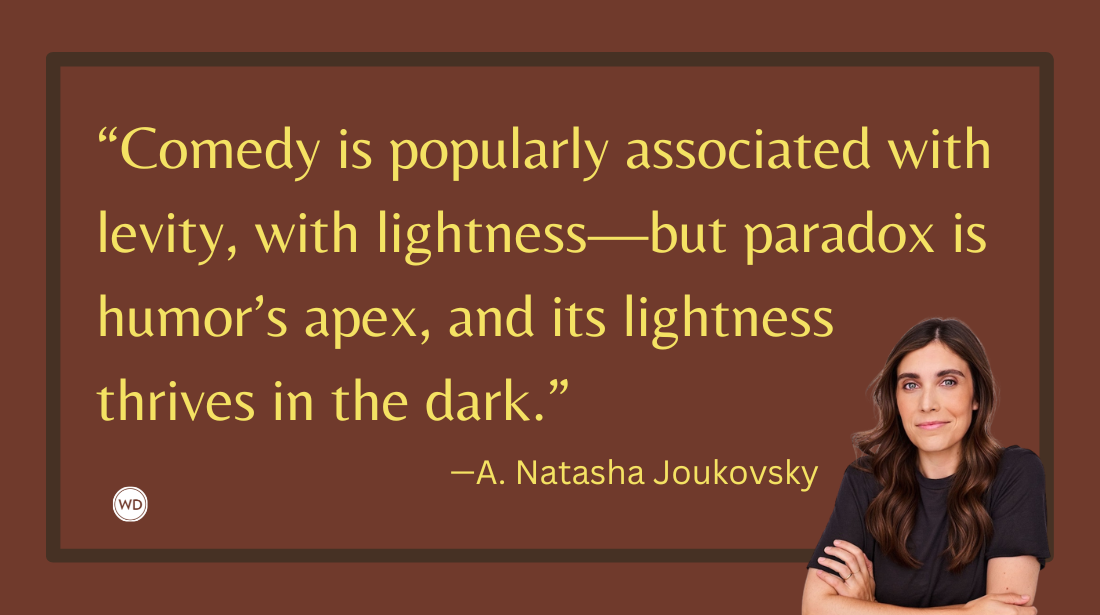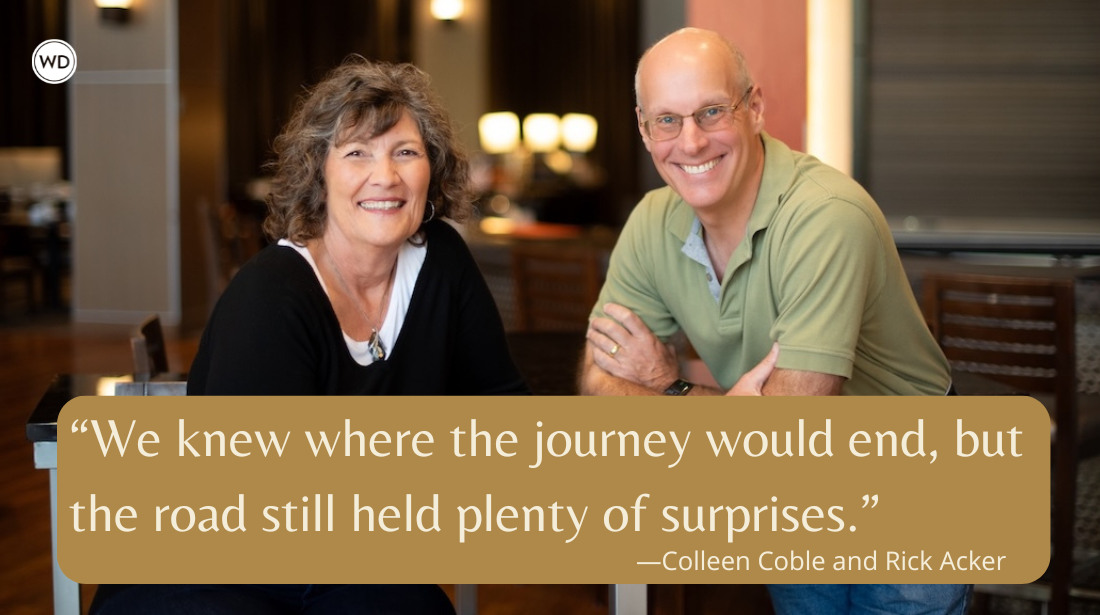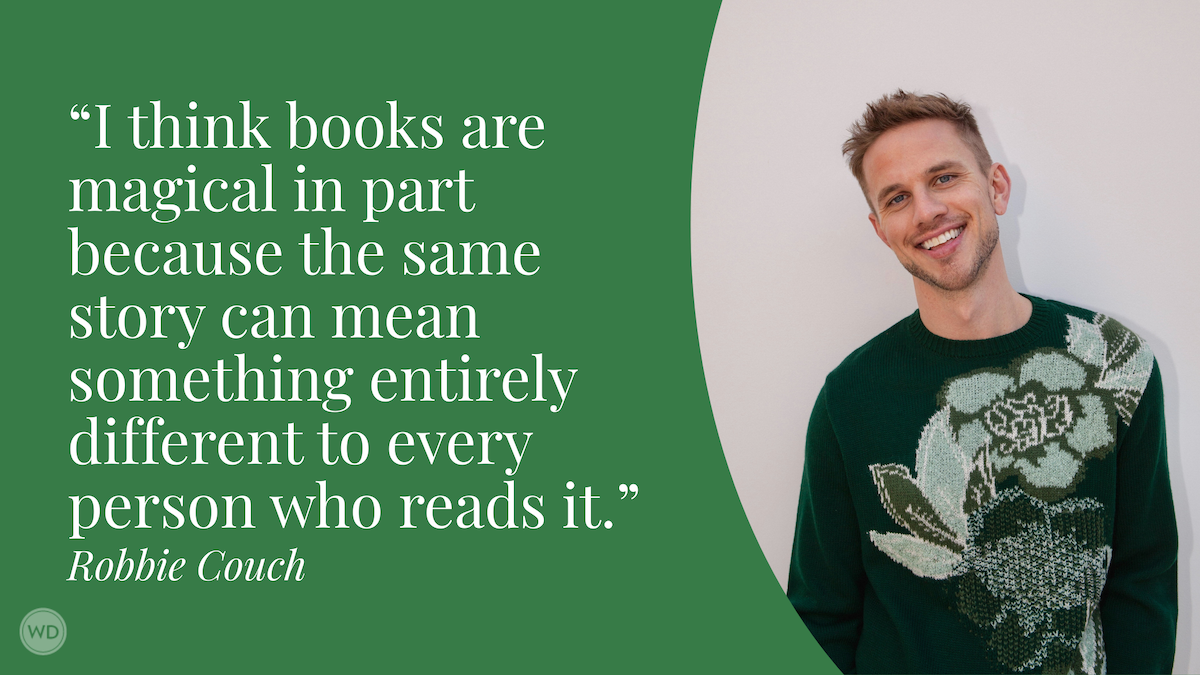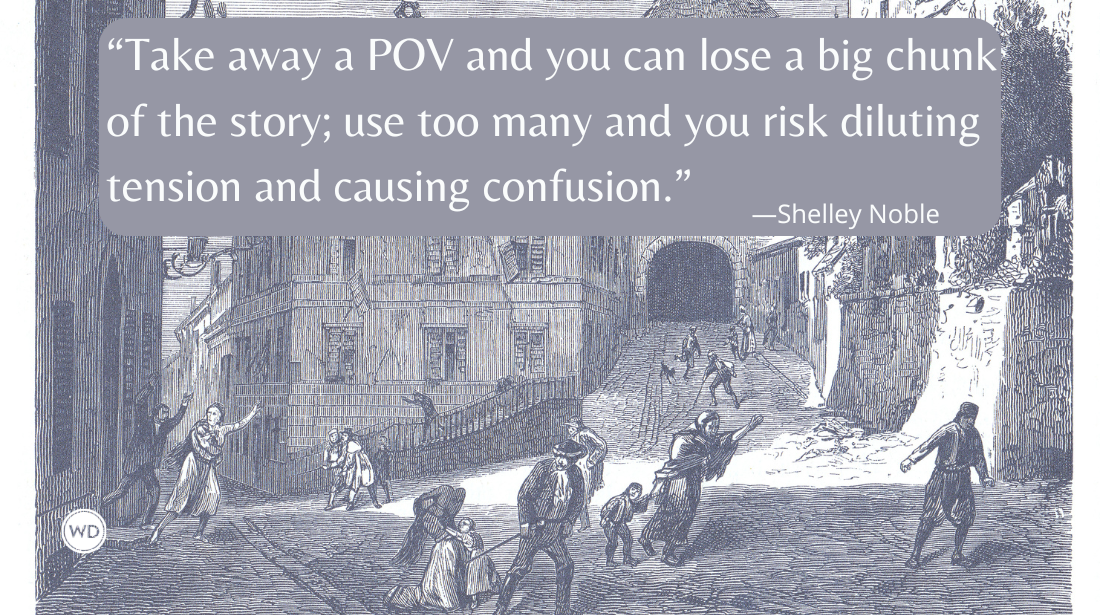The Case Against Writing Rituals
Many writers have certain requirements in order to get to writing: the right lighting, a particular pen, or a favorite mug. Author Stephen Graham Jones offers a different perspective on ways to get to work without ritual.
I have two axioms I fall back on for writing. The first is from one of my uncles. We were working on a tractor out in the field one day when he stopped and told me that if I ever waited to have kids until there was enough money for kids, that I’d never have kids.
While pretty suspect advice to give a 16 year old, I’ve always just applied this to writing: If you wait until you’re good enough to try this novel, to submit to this market, to query this agent, then you’ll never write that novel. You’ll never submit to that market. You’ll never talk to that agent.
You can’t wait, you’ve got to just jump. Like Bradbury said, build your wings on the way down.
This has never failed me. I’ve gotten plenty of rejections, I’ve had a novel or two fizzle halfway through. But I’ve gotten a lot of acceptances, too, and finished many more novels than not.
The other axiom is more Dr. Spock—the baby-book one, not the Star Trek one. It’s that old saw about new parents throwing a raucous dinner party in their apartment. Very soon it becomes time to put the baby to bed, so the dinner guests try to hush themselves. But these parents tell them no, no, keep going, be as loud as you can, be louder if you want, please. We want to train this kid to fall asleep no matter the noise. If this kid starts needing special conditions in order to sleep, then all bets are off.
How I’ve applied this to writing is that I shouldn’t need special conditions in order to get some words down on the page. Which is to say, I should be careful of ever ritualizing this thing. It doesn’t need to be a certain time of day, I don’t need to have this or that special mug, the curtains don’t need to be open or shut, the light can be however, and who cares what sounds are leaking in to wherever I am?
This has always worked great for me as well. All I need to get some pages down is a single seat in a bustling airport, or a corner of this hotel lobby, or an overhang mostly out of the rain at this bus stop. The more you can train yourself to write anywhere—everywhere—the more you can get done. While part of thinking like that is not falling into the trap that “writing is special” or “sacred,” the bigger part is just being able to turn the world off, lose yourself in another one.
IndieBound | Bookshop | Amazon
[WD uses affiliate links.]
However, strict as I’ve always tried to be regarding this—no rituals! no rituals!—it’s so easy to slip, isn’t it? I mean, fiction, it basically works by magical thinking, which is a lot like superstition.
Example: About 15 years ago, I was wearing this one ugly winter hat for a novel I was writing, and that novel worked out. So? I naturally ascribed the magic to that hat, and made it my new writing buddy. Every time I sat down to the keyboard, I’d pull that hat on, get cooking.
All it took to break me of that, though, was accidentally answering the door while wearing that hat the following summer, and seeing in this guest’s hesitant eyes how ridiculous I was being. I threw that hat away fast, kept writing. Problem solved. Easy.
Until it wasn’t.
Like I say, I’m strict. Yeah, there is a keyboard I prefer, but I can work with whatever I’ve got handy, even just a pen and a notebook, or the back of an envelope. Sure, I like loud music to keep me from thinking—nothing’s more inimical to writing than thinking, for me—but I can work without it, no problem.
I have, however, lately fallen into a trap that’s turning out to be peculiarly tricky to extricate myself from. And . . . I kind of doubt I’m the only one?
Here, I’ll show you—and I remember it well because it just happened about eight minutes ago: I fed the dogs and slipped into my study to get some more words down on this story that I’m pretty sure is falling apart, is broken at the level of conception. Still, I want to see if I can make it work, if I can find that one elegant gesture or build that’ll bring it all together.
I fire up the computer, settle into my chair, and . . . instead of diving right into that page I know is waiting for me, that blinking cursor that’s inviting me back in, I:
- Click through all the new emails that stacked up overnight, putting stars by stuff I at least mean to answer, though I know I never will
- Scroll through my one social media feed for probably five minutes
- Arrow through the right side of the open tabs on my browser (all listicles), as that’s where I try to leave stuff I actually want to maybe read, never mind that by the time I ever do, a new math will probably have been invented
Which is to say: I tell myself not to ritualize my writing, but here I am running a sort of self-made gauntlet in order to get to the writing. And if that’s not a ritual, then I don’t know what is. And, sure, maybe I’m just stacking things between me and this in-process story because in my heart I know it’s falling apart, that I’m not fast enough to catch all the crumbles, assemble them into something readable. But lack of nerve is no excuse. I should know by now that putting a failure off doesn’t mean it’s going to be any less of a failure.
Worse, I know that I should have sat down and dove right into that story. But ... it’s like I had to clear my plate first? I had to give myself “permission” to tab over to that unfinished page. And I could get that permission when I’d checked email, ran through social media, and logged my open tabs.
That’s very-very wrong.
Another rule I try to hold myself to is to always choose writing over everything but family and health. There used to be a third thing, but whatever it was, it’s fallen away.
However, am I even doing that anymore? It would seem that email and social media and listicles about funny yearbook quotes and the like have become numbers three through five, leaving fiction in something a lot like last place.
My resolution, then, is simply to not allow things to jump the line like that. It’s okay—it’s best, even—to sit down at the keyboard and not have to run a gauntlet of so-called duties in order to get “to” the pages I’m here to write. Rather, the pages come first, and then, if there’s time, maybe I check email, maybe I take a fast scan through social media. As for the open tabs, no, I’ll never not be able to click on “Unexpected Trail-cam Photos!” or “Scary Things Kids Have Told Babysitters.” But all that will have to come after the words, after the pages.
And, now that I’ve written this out loud and public instead of just thinking it after the fact, maybe it can shame me better, each time I sit down to write. Or maybe together, all of us holding our hands over our eyes and ears as we run past the lures and bait and duties and traps that want to mire us down, we can get some actual work done.
Stephen Graham Jones is the New York Times bestselling author of The Only Good Indians. He has been an NEA fellowship recipient, has won the Jesse Jones Award for Best Work of Fiction from the Texas Institute of Letters, the Independent Publishers Award for Multicultural Fiction, a Bram Stoker Award, four This is Horror Awards; and has been a finalist for the Shirley Jackson Award and the World Fantasy Award. He is the Ivena Baldwin Professor of English at the University of Colorado Boulder.









